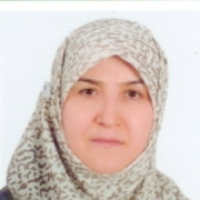The Effect of Autophagy Induction in Oncolytic Reovirus Replication in Mesenchymal Stem Cells
Oncolytic reoviruses can infect and kill malignant cells while sparing their normal counterparts. Reoviral infection can induce or activate autophagy, even though metformin can induce autophagy. Identifying and regulating the cellular pathways important for reovirus replication and oncolysis can improve targeted-biological therapies for cancer. Here, the autophagic process was triggered via metformin, and we investigated the effect of autophagy activation on oncolytic reovirus replication in mesenchymal stem cells as primary cells and L929 cell lines.
Adipose derived mesenchymal stem cells (AD-MSCs) and L929 cells were treated with metformin and reovirus type-3 strain Dearing (T3D). Twenty-four hours after infection, the viability of AD-MSCs and L929 cells were examined by MTT assay. Also, the effect of metformin-induced autophagy in the reovirus replication in these cells was determined by real-time polymerasechain-reaction.
Our results show that treatment with metformin and reovirus reduced the viability of the cells compared to treatment with metformin or reovirus alone in both cells. Also, coadministration of metformin and reovirus significantly decreased the relative expression level of the Beclin-1 gene compared to treatment with metformin in both cells. However, the expression level of the reovirus L3 gene after treatment with metformin and reovirus in L929 cells increased significantly compared to AD-MSCs.
Our data suggest that metformin-induced autophagy enhances reoviral replication in AD-MSCs and L929 cells. These findings represent the role of autophagy induction in facilitating reovirus replication and contribute to a better understanding of reovirus-host interactions.
-
Conceptual Model and Requirements of An Electronic Case Report Form to Collect a Minimum Data Set of Complications of the COVID-19 Vaccine
Seyyed Hamzeh Nasiri Khoshroudi, AliAsghar Safaei*,
Journal of Health and Biomedical Informatics, -
Antiviral Response in Bats and The Reason for Their Role as Reservoir for Emerging and Re-Emerging Diseases
Farzanehpour M. *, Soleimanjahi H., Esmaeili Gouvarchin Galeh H., Izadi Sh.
Iranian Journal of Biology,



